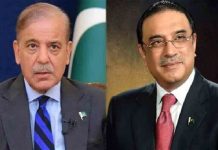DM Monitoring
A dead professor and numerous defunct organisations were resurrected and used alongside at least 750 fake media outlets in a vast 15-year global disinformation campaign to serve Indian interests, a new investigation has revealed.
The man whose identity was stolen was regarded as one of the founding fathers of international human rights law, who died aged 92 in 2006. “It is the largest network we have exposed,” said Alexandre Alaphilippe, executive director of EU DisinfoLab, which undertook the investigation and published an extensive report. The network was designed primarily to “discredit Pakistan internationally” and influence decision-making at the UN Human Rights Council (UNHRC) and European Parliament, EU DisinfoLab said.
EU DisinfoLab partially exposed the network last year but now says the operation is much larger and more resilient than it first suspected.There is no evidence the network is linked to India’s government, but it relies heavily on amplifying content produced on fake media outlets with the help of Asian News International (ANI) – India’s largest wire service and a key focus of the investigation. The EU DisinfoLab researchers, who are based in Brussels, believe the network’s purpose is to disseminate propaganda against India’s neighbour and rival Pakistan. Both countries have long sought to control the narrative against the other.
Last year, the researchers uncovered 265 pro-Indian sites operating across 65 countries, and traced them back to a Delhi-based Indian holding company, the Srivastava Group (SG).
The report, titled Indian Chronicles, reveals that the operation, run by SG, is spread over at least 116 countries and has targeted members of the European Parliament and the United Nations – raising questions about how much EU and UN staff knew about SG’s activities, and whether they could have done more to counter those activities, especially after last year’s report. Mr Alaphilippe said the EU DisinfoLab researchers had never encountered such co-ordination between different stakeholders to spread disinformation.
“During the last 15 years, and even after being exposed last year, the fact that this network managed to operate so effectively shows the sophistication and the drive of the actors behind Indian Chronicles,” he said.
“You need more than a few computers to plan and sustain such an action,” he said.
The researchers cautioned against “definitively attributing Indian Chronicles to some specific actors such as Indian intelligence services” without further investigation. Ben Nimmo, a disinformation network expert, told the BBC the uncovered network was “one of the most persistent and complex operations” he had seen, but he too was wary of attributing it to a specific actor.
Mr Nimmo, who is director of investigations at digital monitoring firm Graphika, cited previous examples of privately-run large-scale troll operations. “Just because they’re big, it doesn’t necessarily mean they’re directly run by the state,” he said.
The BBC approached the Indian government for comment but had received no response by the time of publication.
One of the most important findings of the open-source investigation was establishing direct links between the Srivastava Group (SG) and at least 10 UN-accredited NGOs, along with several others, which were used to promote Indian interests and criticise Pakistan internationally.
“In Geneva, these think tanks and NGOs are in charge of lobbying, of organising demonstrations, speaking during press conferences and UN side-events, and they were often given the floor at the UN on behalf of the accredited organisations,” the report says.The investigation shows that the operation led by SG began in late 2005, a few months after the UNHRC was founded in its current form.
One particular NGO which caught the eye of the researchers was the Commission to Study the Organisation of Peace (CSOP). The CSOP was founded in the 1930s and won UN-accreditation in 1975 but became inactive later in the 1970s.
The investigation found that a former chairman of the CSOP – Prof Louis B Sohn, one of the 20th Century’s leading international law scholars and a Harvard Law faculty member for 39 years – was listed under the name Louis Shon as a CSOP participant at the UNHRC session in 2007 and at a separate event in Washington DC in 2011. The listings shocked the researchers because Prof Sohn died in 2006.The authors dedicated their investigation to the professor’s memory, writing that his name had been “usurped by the malicious actors in this report”. They said CSOP “had been resurrected, and its identity hijacked in 2005 by the same actors depicted in our first investigation”.
The investigation also shows there were several hundred pro-Indian interventions by the non-accredited NGOs, which were repeatedly given the floor at the UNHRC on behalf of the accredited organisations, pursuing the same agenda of maligning Pakistan. On other occasions, NGOs and organisations which seemingly had nothing to do with Pakistan or India according to their stated objectives would get the opportunity to speak at the UNHRC and target Pakistan.
In March 2019, during the UNHRC’s 40th session, United Schools International (USI), another UN-accredited organisation with direct links to SG, allowed its slot to be used by Yoana Barakova, a research analyst with an Amsterdam-based think-tank called the European Foundation for South Asian Studies (EFSAS).
Ms Barakova spoke about “atrocities committed by Pakistan” during the session. She told the BBC that EFSAS was a partner with USI and she was “not responsible for organisational logistics”. The BBC received no reply when it contacted the director of EFSAS, who also represented USI at the same session to criticise Pakistan.The primary news agency re-packaging and boosting pro-India content related to SG appears to be ANI, established in 1971, which describes itself as “South Asia’s leading multimedia news agency, with more than 100 bureaus in India, South Asia and across the globe”. Indian news media, especially broadcast media, thrive on content provided by ANI.
EU DisinfoLab found at least 13 instances of ANI re-publishing mostly anti-Pakistan and sometimes anti-China op-eds by Members of the European Parliament (MEPs), originally published on EU Chronicle, one of the fake news sites linked to SG. EU Chronicle was born in May this year when EP Today, a site flagged in the previous disinformation report, was simply discontinued and renamed. The EU DisinfoLab report said: “The actors behind the operation hijacked the names of others, tried to impersonate regular media such as the EU Observer… used the letterhead of the European Parliament, registered websites under avatars with fake phone numbers, provided fake addresses to the United Nations, created publishing companies to print books of the think-tanks they owned.
“They used layers of fake media that would quote and republish one another. They used politicians who genuinely wanted to defend women or minority rights to ultimately serve geopolitical interests and gave a platform to far-right politicians when convergent objectives could be reached.” Mr Alaphilippe said the news agency ANI was being used to give legitimacy to the entire “influence operation”, which relied “more on ANI than on any other distribution channel” to give it “both credibility and a wide reach to its content”. ANI’s news reports have found space in many mainstream Indian news outlets and publishers. Its content was further reproduced on more than 500 fake media websites across 95 countries, the researchers found. Demonstrations in Europe conducted by organisations linked to the Srivastava Group have also been covered by ANI, as well as by fake media websites linked to SG.
According to the findings of the investigation, the disinformation network had a two-pronged strategy to spread influence. In Geneva, the think-tanks and NGOs were in charge of lobbying and protesting, and taking the floor at the UNHRC on behalf of accredited organisations. In Brussels, the focus was on the MEPs, who were taken on international trips and solicited to write “exclusive” op-eds for fake outlets like EU Chronicle, which would then be amplified using ANI, the researchers found. A group of MEPs appear regularly in the investigation. One of them, French MEP Thierry Mariani, has written two op-eds for EU Chronicle and was also part of a controversial visit to Indian-administered Kashmir last year.
“If the Indian government is behind the newspaper [EU Chronicle], it is not my problem,” Mr Mariani, a member of France’s far-right National Rally, told the BBC. “I sign what I want and I feel, it is my opinion. I have connections in [India’s governing] Bharatiya Janata Party (BJP) and I support the government of [Narendra] Modi,” he said.
Two other MEPs named in the report – Angel Dzhambazki from Bulgaria and Grzegorz Tobiszowski from Poland – denied having written op-eds that were published on EU Chronicle.
The articles under their names were also reproduced on ANI.Asked what the EU is doing to fight disinformation networks, EU spokesperson on foreign affairs Peter Stano pointed to the action taken to expose EP Today last year. “Exposing the disinformation and those who spread it is one of our main instruments,” he told the BBC. “We will continue to identify them and call them out.”




